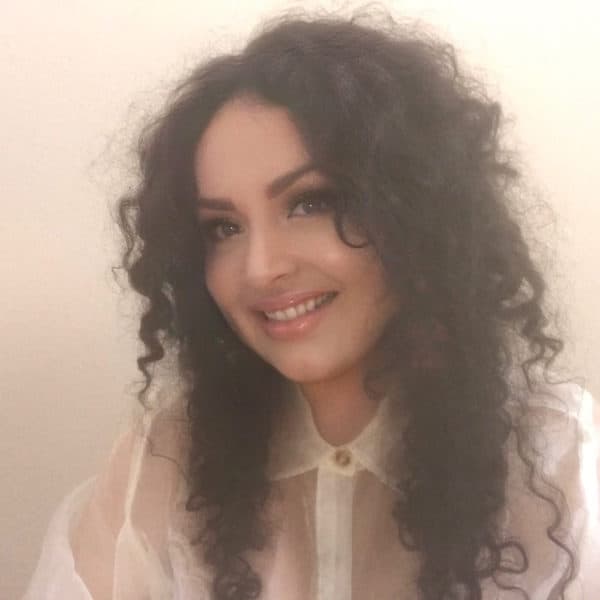Advertisement
To Show How Climate Change Is Affecting Boston Harbor, This Artist Uses A Popsicle Taste Test
Resume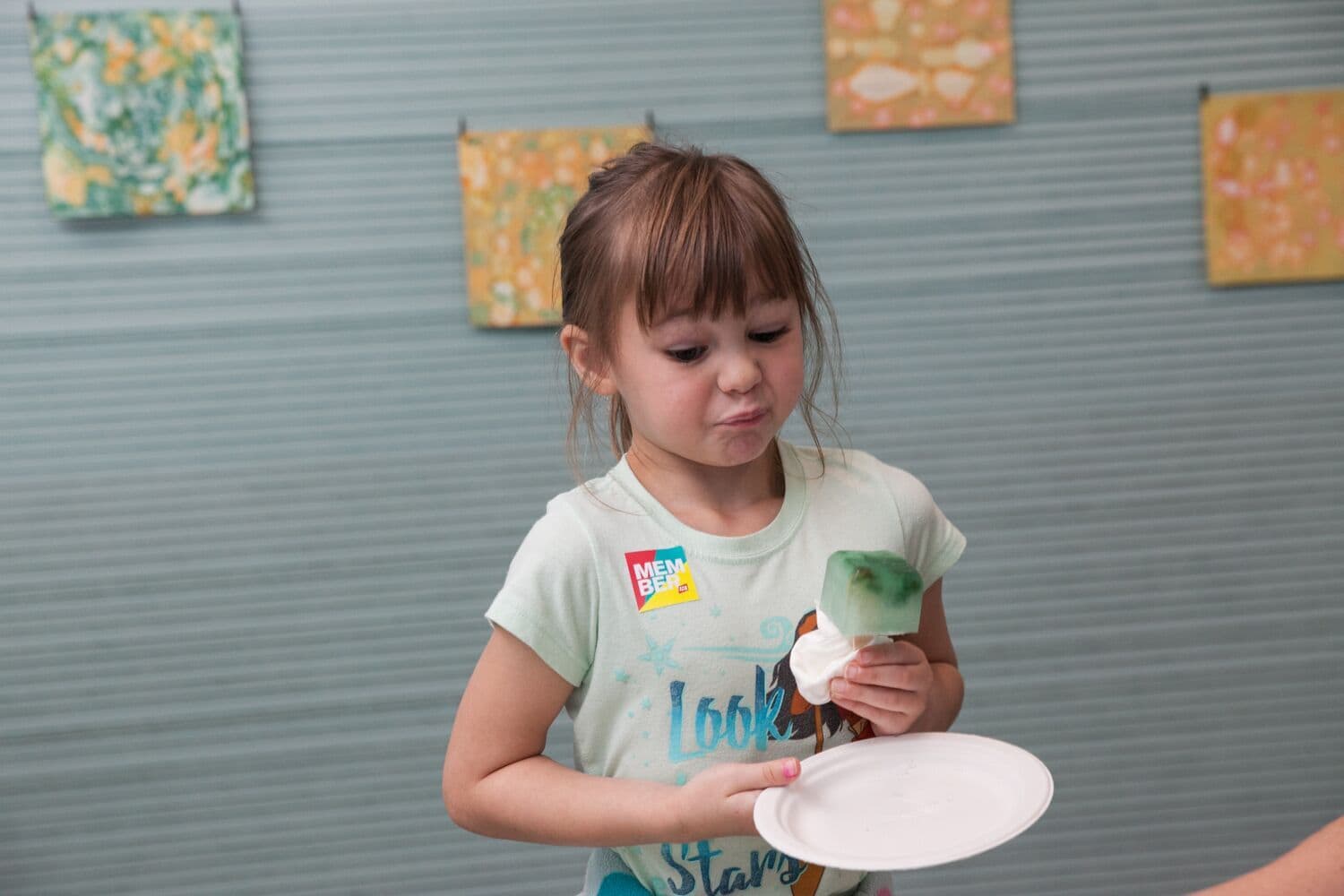
Artist Evelyn Rydz stands in the lobby of Boston's Institute of Contemporary Art holding a green popsicle, trying to convince a museum employee to taste it.
She dips the bluish green frozen treat in lime and lemon juice and Atlantic sea salt. "So it's a little salty, a tiny bit fishy. It's very good for you," she says as she points to the most important ingredient in the popsicles: phytoplankton.
Phytoplankton are microscopic, plant-like organisms that live on the surface of the ocean. They create half of the atmosphere's oxygen and are the base of the ocean's food web. These little green things are super important and, according to Rydz, good enough to eat.
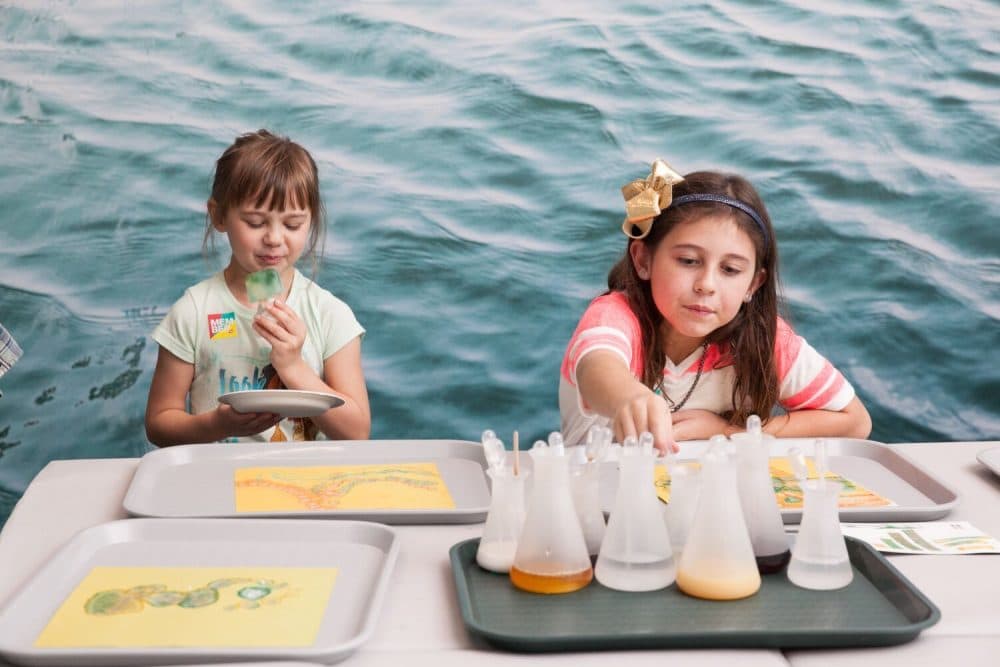
Rydz, who grew up in Miami, has been kind of obsessed with the ocean since she was a kid. In her artistic practice, she draws and photographs objects she's found washed up on coastlines throughout the U.S., from rope to refrigerators. She's particularly interested in contemporary coastlines — how the daily actions of humans impact the coastlines and how evolving oceans impact people.
She tries to show that water is the common thread of humanity. The ocean, Rydz says, is so fierce, sometimes threatening, powerful, but also fragile, vulnerable to our human activity. It holds our histories, our migrations, our wars.
"I think it is a sight both of complex histories and of politically charged, historically charged [events]. The ocean is such a complex place, for everything from thinking about immigration, to plastic washing up on the shore, long histories of travel, of migration, both wanted and unwanted," says Rydz.
At the ICA, Rydz's interactive art project, "Salty > Sour Seas," converts the museum's front lobby into an immersive laboratory, where visitors can see the changes in Boston Harbor. Rydz is specifically bringing light to the change in phytoplankton at the surface of the Boston Harbor, just outside the museum. She put them on popsicles to get people to really think about phytoplankton -- the opposite of out of sight, out of mind.
"The popsicles are a way to kind of to consume them to make them part of your memory, part of your experience."
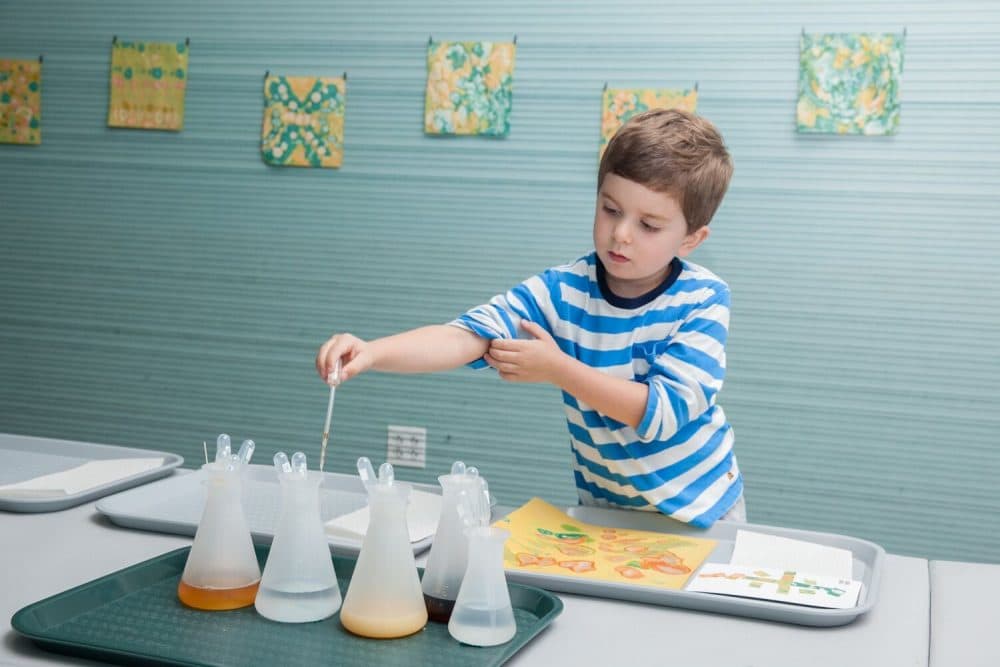
The popsicle is purposely sour, representing how much our oceans are souring. Data from the National Oceanic and Atmospheric Administration shows that the carbon dioxide humans are putting in the atmosphere isn't just warming the planet, it's also making oceans acidic.
"There's some research showing, over time, some phytoplankton will go extinct. And others will thrive. So we don't know exactly how that will affect everything, but we do know it's changing ocean chemistry and creating an imbalance," says Rydz.
She wants people to explore this change through artistic methods. At her installation, visitors use pH paper strips and different acidic liquids, including water from the Boston Harbor, to make what look like abstract paintings. All the paintings then hang together on a large wall at the ICA — their bluish green tones resembling the color of the harbor's water.
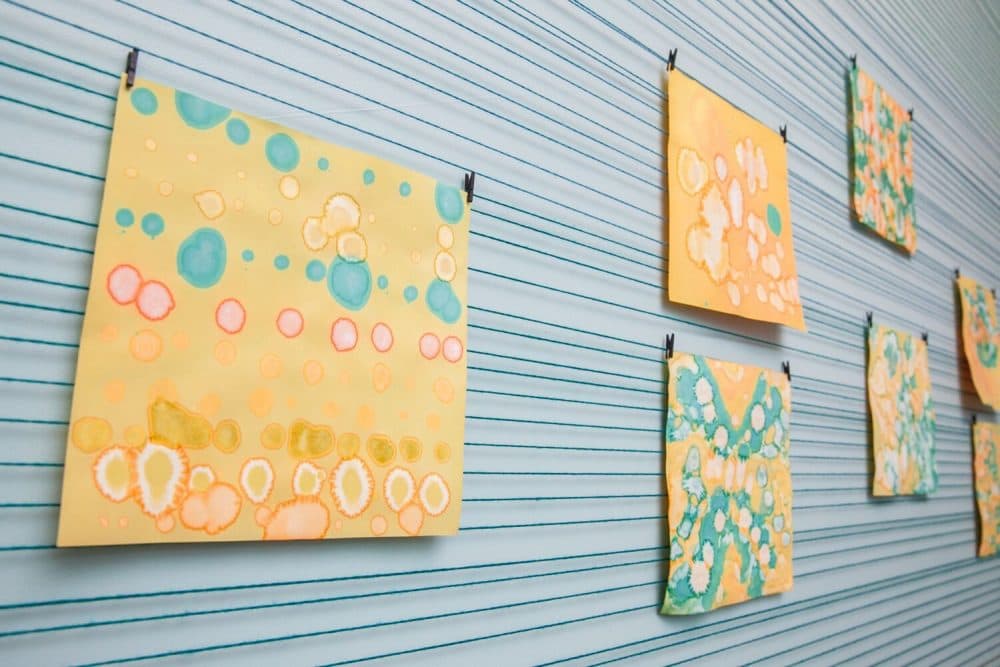
Rydz says the interactive project is a meditation on daily, seemingly small decisions with global impacts.
"Looking back to these small individual gestures, these small drops on the page. One individual's actions becoming part of a much larger public environment, just like our private individual actions become part of a shared public space and have bigger impacts."
Evelyn Rydz' "Salty > Sour Seas" installation is at the ICA on Saturdays and Sundays, from noon to 4 p.m. through March 11.
This segment aired on November 30, 2017.
